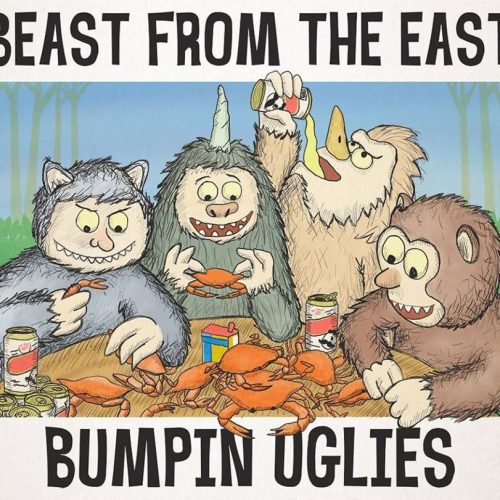Jackson Browne @ Modell Performing Arts Center, Baltimore, MD
Live Reviews | May 6th, 2018

Date: May 3rd, 2018
Band Link: jacksonbrowne.com
Browne alternates hits with ‘deep cuts’ in Baltimore concert
Social consciousness, a better tomorrow remain on his mind
Jackson Browne isn’t known much for flourish or wasting his energies. So it was as he took the stage at the Modell Performing Arts Center at the Lyric in Baltimore Thursday, where the 69-year-old singer/songwriter came out with his band, waved, sat down and then plunged headlong into his 1974 hit “Before the Deluge.”
Still sporting his ever-present shoulder-length brown hair, Browne’s show offered a leisurely stroll through his half-century in music, with predictable staples like “The Pretender” and “Running on Empty” alternating with lesser-known tracks “For Taking the Trouble” and “Love Needs a Heart.”
“This sounds like a crowd that wants to hear some ‘deep cuts,’” Browne said of the Charm City audience—largely in the same age group as the artist, but with a fiery enthusiasm for the material notwithstanding.
Browne was backed by a seven-piece ensemble including bassist Bob Glaub, drummer Mauricio Lewak, vocalists Alethea Mills and Chavonne Stewart and the extraordinarily gifted guitarist Val McCallum and pedal steel virtuoso Greg Leisz—all of whom were singled out by their leader for elegant showoffs and lengthy solos at various points in the show.
The first half of Thursday’s show was undoubtedly high-energy, with Browne parading out perennials “You Love the Thunder,” “Doctor My Eyes” and the dreamy “These Days” and its haunting closing lyric: “Don’t confront me with my failures; I had not forgotten them.”
These well-traveled tunes Browne alternated with his more socially conscious-raising compositions, including “The Dreamer,” a song he wrote specifically about the ongoing debate over border security and the naturalization of immigrants brought to the U.S. as children. For “Lives in the Balance,” his questioning poem about “who the men in the shadows are” making the decisions about who and where we go to war, Browne brought the outstanding Mills and Stewart to center stage to help sing the song that demands to answer the great whys and wherefores of U.S. foreign policy. Mills and Stewart admirably tackled the verses on their own after Browne’s initial offering, with Browne rejoining them for spirited harmonies on the choruses. Mills and Stewart deservedly received a standing ovation for their work on the tune.
For “If I Could Be Anywhere,” from Browne’s most recent album, “Standing in the Breach,” the songwriter spoke about trying out surfing and composing the first verse of the song, intent on it becoming a “surf song.” However, finding that goal a bit far out of reach, the composition melded into its current form, in which Browne speaks of being here and now, when he can do the most good to help out the environment and his fellow man.
Noticeably throughout the evening was that Browne—either due to his age or simply because he can—transposed many of his songs down a full step or more in key signature. Whether this is due to a cognizance of some of the higher notes required on cuts like “In the Shape of a Heart” and “The Barricades of Heaven” perhaps now being out of his reach or simply to modulate the songs in another key is known only to the artist himself, who is notoriously shy about interviews or public introspection.
No matter, as Browne—in whatever key—brought the house to a standstill just before intermission with a stirring rendition of “For a Dancer,” the elegiac song that, though it was penned a full two years before his first wife’s suicide, has come to be seen by many as requiem in her name ever since. Browne stood from the piano at the song’s conclusion and announced a 15-minute break, leaving most everyone in the Modell to wipe away tears and catch their breath.
The show’s second half was more uneven than its predecessor, with less a cohesive feel to the second set list after the raw emotions of the previous half. Browne alternated between piano and guitar, and either purposely or jokingly exhorted his offstage guitar tech to bring out the “right” ax, only to then realize it was in fact in his hands.
Browne once again lowered the register for “Your Bright Baby Blues” and “Somebody’s Baby,” which took turns at the fore with more “deep cuts” like “Never Stop” that, at moments, seemed to lose some of the magic of the room.
However, the band rounded back the energy with “Redneck Friend,” “The Barricades of Heaven” and “In the Shape of a Heart,” which was capped by a blues chord progression that made the song entirely new.
This led directly into megahits “The Pretender” and “Running on Empty.” The latter, of course, is Browne’s most recognizable radio staple, and may be one of the most ironic of classic rock tunes given that, despite its being a rousing show-closer and up-tempo crowd-pleasure, in fact touches on searingly dark subject matter. In fact, “Running on Empty” can be said to be of a piece with Billy Joel’s “Piano Man” and Bruce Springsteen’s “Born in the USA”: fist-pumping, “good time” rock songs whose lyrics, if read even badly, provide marked counterpoint in their depiction of disappointment, alienation, fear and the simple uneasy feeling that maybe it’s not going to be all right after all.
But don’t tell concertgoers that, as the Modell’s 2,500 attendees stood, cheered and sang along with Browne as he related the narrative of a man who doesn’t “even know what I’m hoping to find” after a life spent watching the “road rushing under my wheels.” It’s far less a paean to the road than it a meditation on regret.
Still, it remains one of the best road-tripping songs ever written.
True to form, Browne took time in between songs to expound upon pet causes such as the destructiveness of plastics, the plight of Native Americans, and also relating how part of his own social “awakening” was the result of being a Norwegian-American growing up in an almost exclusively Mexican neighborhood of Los Angeles.
Indeed, many of Browne’s works make reference to his native Southern California, and it was there in the early ‘70s where he and a cabal of later famous musicians bounced ideas off of one another in the artistic haven of Laurel Canyon. One such cohort was Glenn Frey of The Eagles, with whom Browne co-wrote “Take It Easy,” which he rolled out as his first song of Thursday’s encore. (Frey died in 2016.)
“Take It Easy” melded seamlessly into the less-known “Our Lady of the Well,” Browne’s 1973 tone poem about finding a temporary, ephemeral peace.
Browne has been better live in my estimation, and the flattening of some of his most recognizable work in key to me indicates the entropy of time and its effect on his voice—a subject not uncommon throughout his oeuvre. Browne will turn 70 in October, and if his history is any indication, he will not slow down or leave the road behind to count his blessings. Even as many of his contemporaries are departing this mortal coil, Browne will almost certainly continue on with his stories of “everyman” and his attempts to, if but a little, nudge his audiences more toward the better world of tomorrow he has sung of in over a half-century of performing.

